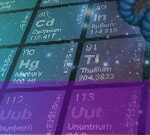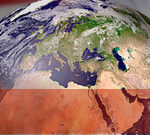NHL Quiz: Well, about three times a year I feel obligated to do a
hockey quiz, so with the start of the Stanley Cup Finals, it”s as
good a time as any. In 1967-68, the NHL expanded from 6 to 12
teams. Who were the 6 expansion teams? Answer below.
“Rocket”
Maurice Richard died last week at the age of 78. Quite simply,
he was the greatest player on the best franchise in NHL history,
the Montreal Canadiens. Even if you don”t like hockey, read on.
There”s quite a story here.
But first off, briefly here are some of Richard”s records.
–Played for the Canadiens from 1942-1960.
–No. 62 on the AP list of the top 100 athletes of the 20th century.
[I imagine my Canadian friends would rail that he should be
higher.]
–Still Montreal”s all-time goal scorer with 544.
–First NHL player to score 50, 1944-45 season, and he did it in
just 50 games. No one else scored 50 until 1960-61, Boom
Boom Geoffrion. [For perspective, you need to understand that
throughout Richard”s career, the seasons were only 50 games,
then 60, then 70 when he retired…today they are 82.]
–14 consecutive seasons of 20 or more goals.
–Remained NHL”s all-time goal scorer from 1952 until his
retirement, and then beyond, when in 1963 he was surpassed by
Gordie Howe.
–Played on 8 Stanley Cup champions during his 18-year career,
including 5 in-a-row between 1955-56 and 1959-60.
–Scored 82 playoff goals in 133 games, including a record 6 in
overtime.
Born in Montreal on 8/4/21, Maurice Richard was one of 8
children. His father was a former semipro hockey player who
worked at Canadian Pacific. Maurice played junior hockey
before entering the Canadiens minor league system. After two
years there, he was called up to the big time in 1942.
Richard quickly became a huge favorite in Montreal, particularly
among the French-speaking people where he was absolutely
revered.
In his second season, some sportswriters were observing Richard
during practice as he skated with blazing speed. One of them,
Baz O”Meara, gave him the moniker “Rocket” and it stuck.
There was no more intense player in the history of the NHL then
Rocket Richard. And former linemate Geoffrion added, “As
soon as he would touch the puck, you could feel the electricity in
the crowd. It was amazing to see how people would react – not
only in Montreal, but everywhere he played. There”s never been
another like him.”
Frank Selke, the Canadiens GM at the time commented, “When
Maurice is worked up, his eyes gleam like headlights. Goalies
have said he”s like a car coming at you at night. He is
terrifying.”
Sports Illustrated”s Michael Farber has written of the adulation
he engendered during his career. It wasn”t just those in the
stands but, throughout Canada, taverns would be packed to listen
to Canadien games on the radio (before television took over).
“The Rocket”s triumphs were the people”s triumphs. His rare
defeats were their defeats.”
Richard used to say, “I”m afraid to let the French people down.”
Rocket (5”10″ and 170 lbs.) was continually harassed by the
opposing teams goons who were assigned to shadow him. He
quickly learned to retaliate with his fists and stick, engaging in
memorable brawls.
In 1951, he was fined $500 for grabbing the referee Hugh
McLean around the neck in the lobby of a Manhattan hotel,
angry about a misconduct penalty McLean had given him the
night before.
But it was March 13, 1955 that will long be remembered
throughout the nation of Canada, especially fans of Les
Canadiens. For it was on that day, in a game with the Boston
Bruins, that Richard got into a fight with one of his chief
nemesis, Bruins defenseman Hal Lycoe. After being checked
hard by Lycoe and cut by his stick, Richard went after him.
When linesman Cliff Thompson intervened, Richard then
punched Thompson twice.
Now you have to picture that Montreal trailed first place Detroit
by only one point with three games to play in the regular season.
Richard, himself, was also leading the league in scoring at the
time, a feat he had never achieved in his illustrious career. So
imagine the fans dismay when NHL President Clarence
Campbell suspended Rocket, not just for the three regular
season games, but also for the whole playoffs.
Four days later, on March 17, Montreal was playing host to
Detroit. Campbell, whose headquarters were in Montreal, was
going to attend the game and sit in his accustomed private box.
Montreal”s Mayor Jean Drapeau and the police chief urged
Campbell not to attend. It seems that Campbell had been
receiving a ton of threats in the mail since suspending Richard
and many of the letters accused Campbell of ethnic bias against
French-Canadians. Campbell nonetheless ignored the warnings
and went to the game.
The Rocket was also in the stands that day and the crowd turned
surly, not only because of the presence of Campbell, but also
because the Canadiens quickly trailed the Red Wings 4-1 by the
end of the first period.
As described by writer Farber, during the intermission between
periods, “a fan marched up the steps (to Campbell”s box) and
extended his hand for what Campbell assumed would be a
handshake. Campbell stuck out his hand. He got a slap in the
face.”
“Retired Red Wings tough guy Jimmy Orlando had spotted the
fan heading toward Campbell and bounded from his seat in
pursuit. An instant after the slap, Orlando spun the fan around
and socked him in the jaw, scattering teeth like jujubes.”
The fans then started pelting Campbell with vegetables and fruit
(they deserve credit for at least being health conscious), and
someone set off a tear-gas bomb. To say it was chaotic would be
an understatement.
Officials ruled a forfeit and thousands streamed onto Ste.-
Catherine Street outside the Forum. A full-fledged riot ensued
with windows smashed, stores looted, cars overturned, and
newsstands set afire. 137 were arrested and the “Richard Riot”
(as it came to be known thereafter) caused $500,000 in damage, a
huge sum for 1955.
Richard went on the radio the next day to urge calm, but it was
too late for the Rocket-less Canadiens title quest as they lost in
the Cup Finals to Detroit. Richard also lost the scoring title by a
single point (he never did capture one in his career).
One of the other casualties for Montreal after the ”55 season was
Coach Dick Irvin. He was fired after the season because it was
felt that he couldn”t control Richard”s temper. Irvin was replaced
by Toe Blake and the Canadiens went on to win the Cup the next
5 seasons.
The Richard Riot was seen as a catalyst for the rise of
“francophone nationalism” in Quebec. The Globe and Mail had
a recent comment on this topic.
“(Quebec) in the 1950s was stifled at being for so long a
paternalistic, deeply religious society, a province where the
majority of the French-speaking population toiled for English-
speaking bosses.The Campbell decision struck a raw nerve
among Richard”s French-speaking fans who saw it as one of their
own heroes being unjustly humiliated by a condescending
anglophone boss.”
On March 11, 1996, the fabled Montreal Forum shut its doors.
Richard was on hand and received a huge ovation. Said
superstar Guy Lafleur, “He deserved it. He”s the guy who started
the history of the Montreal Canadiens.”
[Additional source: Richard Goldstein / New York Times]
Top 3 songs for the week of 5/26/62: #1 “Stranger On The
Shore” (Mr. Acker Bilk) #2 “Soldier Boy” (The Shirelles)
#3 “Mashed Potato Time” (Dee Dee Sharp).
Quiz Answer: First off, in case you had super brain lock, the 6
original NHL teams were Montreal, Toronto, New York, Detroit,
Boston, and Chicago. The 6 expansion teams in ”67-”68 were
Philadelphia, Los Angeles, St. Louis, Minnesota, Pittsburgh,
and Oakland.
Next Bar Chat, Friday.





